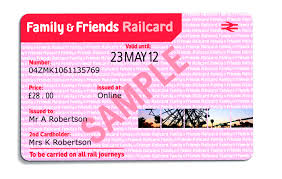
Last night I stayed in a rather lovely hotel in Wimbledon. At £275 a night, you would expect the experience to be worthy of such a hefty price tag. The building, décor, facilities, public areas and bedrooms were all extremely well appointed – as you would imagine. So why am I telling you this? Having checked in, I was escorted to the lift – something that does not usually happen in most hotels. On arriving at the lift, the receptionist had to ensure that I was clear in understanding that my bedroom was on the first floor. Confused? I was…..until I realised that my room number was 217. The rooms on the ground floor all began with a 1. The rooms on the 1st floor with a 2, and the rooms on the 2nd floor with a 3. Utter madness!! Three members of my party ended up on the wrong floor, either ignoring their instruction, or pretending to listen – they will not have been alone. If you owned this hotel, what would you do? Personally, I would change the room numbers!
This serves as the perfect example to help introduce a blog about common sense – or the absence of common sense in so many experiences we encounter on a daily basis. The example is one of a lack of common sense in experience design, but what we unfortunately experience far more often is a lack of common sense in customer experience execution.
Recently I have been contacted by two very good friends expressing their exasperation at experiences delivered by two rail operators. I have nothing against rail operators, but the recent trend suggests that the British consumer is not having much fun on our rail network at the moment. Both of my friends stories demonstrate how common sense is lacking in our daily lives – the question is why – but before you come to a conclusion, please allow me to share their stories with you:
Lack of common sense exhibit 1: the not so ‘electronic’ ticket

This is an image of a new Greater Anglia mobile ticket. It is a good sign that a rail operator has finally managed to catch up with the airlines in being able to offer a paperless experience. As we are now well into 2014, some would say it is about time. You would imagine that a company that has started to adopt paperless travel would be encouraging passengers to use this method more frequently – in fact you would assume that they would positively support the elimination of paper. You would be wrong in making that assumption.
At the end of March, my friend booked a ticket with Greater Anglia. Booking his ticket at the last minute, he opted to have his ticket emailed to him (as the mobile ticket option was not offered on this route). My friend wrongly assumed that having a ticket emailed to him meant that it acted as an electronic ticket. Not reading the small print (as many of us would not), he did not realise that he needed to print out his emailed ticket on an A4 sheet of paper. His failure to read the small print would end up having significant consequences.
To cut a long story short, customers of Greater Anglia who are travelling on an email ticket but who do not print the ticket out, will not be permitted to travel. Even though the customer is able to show the email on their electronic device, unless the ticket is printed, you are going nowhere – unless you buy a new ticket that is. Greater Anglia are not prepared to help you by allowing you to print the ticket in the station – you will be instructed to ‘find a printer yourself’. Ultimately, the only way you are going to be able to travel in this scenario (if you cannot locate a printing service) is if you buy another ticket.
Interestingly, at no time did Greater Anglia staff dispute that my friend had purchased a valid ticket. In fact the duty manager on his return confirmed that ‘this happens all the time’! So why did they insist that he purchase another ticket? Greater Anglia stated in their response to his subsequent complaint that their staff correctly conformed to their processes. They may well have done, but are their processes appropriate?! It was quite clear that a ticket had been purchased, so surely it would have made sense to advise the customer of what they needed to do in future and let them travel. The stress, time and effort that has since been exerted by the customer and company could have been avoided. This is a classic case of the application of a complete lack of common sense.
Greater Anglia have since acknowledged that the ‘product needs to be reviewed’ and that they ‘want to make travelling with Greater Anglia easier’ – whilst they are setting the bureaucratic wheels in motion, maybe they should empower their customer facing staff to apply a little common sense in future.
Lack of common sense exhibit 2: the friends and family ‘not so friendly’ railcard

My other friend (I do have more than two by the way) had an equally frustrating experience on Virgin Trains recently. She frequently travels from the North West to London with at least one of her two children – often doing a return trip on the same day. When travelling with the kids, she uses her friends and family railcard, On this particular occasion, she was travelling down to London with a child, but returning by herself. Unsure whether or not she should use her railcard, she contacted Virgin to find out what she should do. She was told that as long as she purchased a return ticket for both her and the child, she could use her railcard. In this case, it was more expensive for her to do this than buy a single adult return ticket, but for ease, she went ahead and purchased a return ticket for one adult and one child.
You can probably guess what happened. On trying to board the train at Euston, a ticket inspector advised her that her ticket was not valid as she was not travelling with a child. Despite her explanation and protestation, the inspector would not listen. She even tried to explain that the cost of these tickets was greater than the cost of a single, but her explanation fell on deaf ears. She was given no option but to run to the ticket office to buy a new single adult ticket. She ended up catching the train by the skin of her teeth.
The behaviour of this member of staff is in my opinion completely unacceptable. With no interest in listening to reason, the insistence on the black of white application of process meant that no common sense was applied. The result was a very distressed and upset customer.
So what exactly is going on? Why are we experiencing so many scenarios like these? Why does it appear as though employees of companies have no ability to use their heads?! Customer experiences cannot be delivered without people. People ensure that your proposition (if you have one) is delivered to meet and hopefully exceed the expectation of customers. The most customer centric organisations delivering the greatest experiences are those that TRUST and EMPOWER their people to do what is RIGHT for the CUSTOMER. They are not constrained by process – they are guided by process and appropriate behaviours and values to ensure that where the process is not suitable or acceptable, an appropriate solution is found to the benefit of the customer. In both of these cases, it is clear that the employees involved are not trusted or empowered to do what is right. They are managed and measured to strictly apply process – even if it makes no sense at all – BONKERS!
People are the glue that gels customer experiences together. If companies do not invest in their people and make them an integral part of the experience, they will find it very difficult to deliver consistently good and continuously improving customer experiences. It is fair to say that not everyone has the ability to use common sense – but most of us do possess the natural ability. I hope for a world where the companies we work for encourage their people to just do what is right – and if you are not sure, check with someone before you do something to your customers that you would not dream of doing to yourself. Rose tinted spectacles? Maybe, but I can dream!



